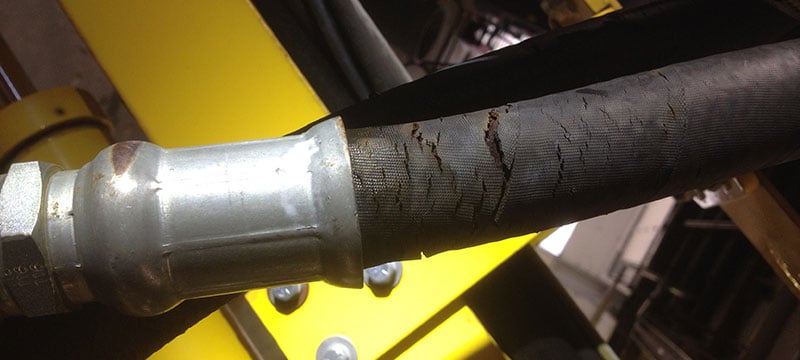Your stationary hydraulics system is critical equipment for your business operations. That’s why it’s important to make sure the equipment and components are functional and well-maintained, not only because it saves you time and money, but because it helps keep your employees safe. Maintaining your hydraulics equipment offers many benefits – some you probably have thought of, and others you haven’t.
- Production is efficient because equipment is always in good operating condition.
- Maintenance personnel can focus on scheduled work because there are fewer emergency repairs.
- Inventory control is improved because fewer spare parts are needed.
- Scheduled inspections reduce downtime.
- Safety hazards are minimized.
- Equipment life increases, reducing capital outlays due to purchasing new equipment prematurely.
- Costs for repair are reduced.
- Fluid leaks and spills are reduced, which leads to fewer issues with the Environmental Protection Agency.
Preventative Maintenance: What to Look For
It helps to be aware of any noticeable difference in how the equipment operates during its daily use, which could be indicative of a problem.Before performing preventative maintenance, be sure to turn off the equipment’s power and release the pressure in the hoses. Ensure the equipment and components are in a safe or neutral position and allow cooldown time.
First, do a visual check of your equipment. Look for hose abrasion, nicks, blisters, hardness or color changes. Check for leaks, which are indicated by puddles of fluid, low reservoir and greasy hose. Ensure the hose routing looks good, with proper slack and no rubbing, twisting or kinking. Always be sure there are no high heat sources near the hose.

Does the hydraulic hose need to be fixed? There are benefits to doing it in-house.
Inspect dies and collets for any damage, including chips, cracks, gouges or scratches. Replace any that are damaged.
Next, how does the pump sound?
A high-pitched whining or knocking indicates a problem like cavitation or aeration. Cavitation occurs when air cavities form and collapse in the liquid. This prevents the pump from getting the volume of oil it requires at the suction port. If this isn’t fixed, the pump will be damaged.
Aeration occurs when outside air gets into the suction line. This happens if there is a leak in the suction line, an improper shaft seal, low oil level, a misaligned coupling or wrong shaft rotation.
For crimper maintenance, regularly apply a high-pressure grease to the inside surface of the die bowl/cone. If collets and dies wear down, your crimps will not be up to specifications. Make sure to clean out the grease in the bowl if your work environment is dusty or dirty.
Use a high-grade hydraulic oil and maintain its level to within half an inch from the top of the reservoir.
Regular Maintenance and Inspections = Safety
Periodic inspections are important to ensure the safety of your equipment and the workers who use it. You should always refer to your equipment manufacturer’s inspections recommendations; however, the standard for inspecting stationary hydraulics equipment is every three months.The following factors influence how often you need to inspect hoses:
- The critical nature of equipment
- The operating temperatures
- The operating pressures
- The environmental factors
- The type of usage (rugged, abusive, shock, vibration)
- Accessibility of equipment
For further reference, we covered other ways to keep your hydraulics safe.
Keeping your hydraulics system well-maintained is worth the effort. Just make sure you have all the replacement parts you need when you need them, so your equipment downtime is minimized and you can get back to work as soon as possible. If you need a partner in your business who can help with your fluid flow needs and teach your employees hydraulics safety, 

.png?width=131&height=58&name=image%20(40).png)
